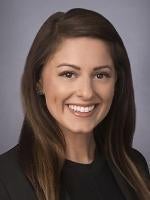As noted in our March 31, 2020 blog article, “Strategies in Responding to COVID-19: Expanding Scope of Practice to Increase Patient Access to Healthcare” and in our May 8, 2020 blog article, “COVID-19: Medical Liability for Expanded Scope of Services,” the COVID-19 pandemic has revealed limitations in the healthcare system that have impeded access to medical care, often for rural, low-income, and minority communities. In order to increase healthcare access, many states and the federal government have worked to (i) expand the scope of practice for different types of non-physician practitioners (“NPPs”) to provide a wider range of healthcare services; (ii) eliminate or relax physician supervision requirements so that NPPs can practice independently without having to rely on physicians who are, themselves, scarce healthcare resources; and (iii) insulate NPPs from liability for the provision of those healthcare services that fall outside of their traditional scopes of practice.
While some healthcare industry stakeholders and analysts have lauded these efforts as a way to increase much needed access to healthcare services during the current public health emergency, others have expressed their considerable concern that such actions may jeopardize the quality of healthcare being provided to patients. As described below, the impact of such opposition can be seen most recently in the August 10, 2020 Final Rule, “Medicare Program; Inpatient Rehabilitation Facility Prospective Payment System for Federal Fiscal Year 2021”(the “Final Rule”).
In a joint letter dated June 11, 2020 and addressed to Centers for Medicare and Medicaid Services (“CMS”) Administrator Seema Verma, the American Medical Association (“AMA”), joined by other healthcare professional associations and advocacy groups (together, “Associations”), fervently criticized the April 21, 2020 Proposed Rule that preceded the Final Rule referenced above (the “Proposed Rule”). As drafted, the Proposed Rule would have amend the Inpatient Rehabilitation Facility (“IRF”) Medicare coverage requirements to allow NPPs to perform certain professional and administrative rehabilitation services that are currently required to be performed by rehabilitation physicians.
In the above referenced comment letter, the Associations expressed their concern that the scope of practice and related Proposed Rule provisions could “reduce the standard and quality of care IRF patients receive,” and that the services led by NPPs would not “rise to the level of services that IRFs are designed and paid to provide.” Further, the Associations argued that the Proposed Rule’s scope of practice proposal “sets a dangerous precedent for removing physician supervision requirements across all health care settings.”
In response to this type of concern, CMS, in the Final Rule, took a “more measured approach” to the expansion of the role of NPPs in IRFs. Currently, Medicare requires physicians to conduct visits three days per week to ensure the effectiveness of an IRF inpatient’s plan of care. Other medical professionals, including NPPs, can perform additional visits, but those visits do not count towards the three visits per week Medicare coverage requirement. Whereas the Proposed Rule broadly expanded NPP scope of practice and limited physician supervision requirements in an IRF setting, the Final Rule is more circumspect in its amendments to the Medicare IRF conditions of coverage as they relate to NPP services. Under the Final Rule, NPPs are allowed to conduct one of the three required rehabilitation physician visits during every week of the IRF stay, if permitted under state law, with the exception of the first week.
The acquiescence on the IRF scope of practice amendments strongly indicates that CMS is amenable to changing its approach on these issues in response to industry input, which will be of particular importance beyond the public health emergency when so many temporary NPP scope of practice waivers in other healthcare environments are set to expire. While, again, many are advocating to make some of these relaxations permanent, the Associations are pushing back. In a July 22, 2020 letter to CMS Administrator Verma, the Associations strongly urged CMS “to sunset the [temporary] waivers involving scope of practice and licensure when the public health emergency (PHE) concludes,” arguing that “[p]hysician-led team-based care has a proven track record of success in improving the quality of patient care, reducing costs, and allowing all health care professionals to spend more time with their patients.”
CMS has yet to publicly respond to the calls for sunset provisions on the temporary scope of practice waivers that are currently in place. As the federal public health emergency declaration is currently set to expire on October 23, 2020 (N.B., past expiration dates have been subject to last-minute extensions), it may be some time before the fate of the scope of practice and licensure waivers is made clear.



 />i
/>i

